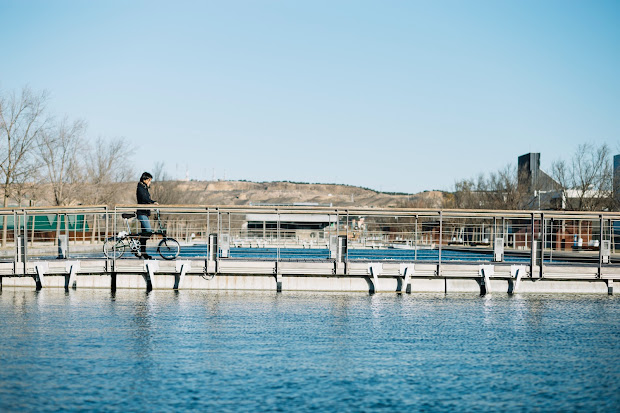Importance of STP Plants in Malls: Technology, Advantages, and Financial Flexibility
Introduction:
In today's world, sustainable development and environmental management are crucial aspects of modern infrastructure. Malls, as high-traffic commercial spaces, require effective systems to handle the large amounts of wastewater generated. This is where Sewage Treatment Plants (STP) come into play. These plants not only ensure the treatment of waste but also contribute to the environmental responsibility of shopping centers. Technologies like MBBR (Moving Bed Biofilm Reactor), SBR (Sequencing Batch Reactor), and MBR (Membrane Bioreactor) are employed in STP plants to optimize the process. This article explores the importance of STP plants in malls, the technologies used, and the financial and operational benefits they offer.
What is an STP Plant?
A Sewage Treatment Plant (STP) is a facility designed to treat and purify wastewater before it is released back into the environment. In malls, where large volumes of wastewater are generated daily, an STP plays a vital role in maintaining sanitation standards and preventing environmental pollution. The treated water is either reused or safely discharged into natural water bodies, ensuring that malls comply with environmental regulations.
Technologies Used in STP Plants:
1. MBBR (Moving Bed Biofilm Reactor): The MBBR technology is widely used in modern STP plants. It involves the use of biofilm carriers that move in the aeration tank, promoting the growth of bacteria to degrade organic matter in the wastewater. This system is efficient, cost-effective, and requires less space than traditional treatment methods. MBBR systems can handle variable wastewater loads, making them perfect for malls where water usage fluctuates throughout the day.
2. SBR (Sequencing Batch Reactor): SBR is a batch-wise wastewater treatment process, where the wastewater is treated in sequences. This technology is flexible and can be adjusted to treat different volumes of wastewater. In a mall, SBR systems can handle peak loads effectively and provide high-quality treated water.
3. MBR (Membrane Bioreactor): MBR combines biological treatment and membrane filtration. The wastewater is treated through a bioreactor and then passed through a membrane to separate solids from the treated water. The advantage of MBR is that it produces high-quality effluent that is suitable for reuse in non-potable applications like irrigation and cooling. MBR systems also require less space and can be integrated into compact STP designs, making them suitable for malls with limited space.
Importance of STP Plants in Malls:
1. Environmental Responsibility: Malls generate significant amounts of wastewater, and without proper treatment, this can lead to pollution of nearby water bodies. STP plants ensure that wastewater is treated effectively, helping malls reduce their environmental footprint and comply with environmental standards.
2. Water Conservation: With the use of treated water, malls can reduce their dependence on external water sources for non-potable uses like landscaping, cleaning, and cooling systems. This promotes water conservation and helps malls manage their water resources more efficiently.
3. Cost-Effective and Sustainable Solution: Though the initial setup of an STP plant involves considerable investment, the long-term benefits are substantial. By recycling wastewater, malls can reduce their water bills and minimize the costs associated with purchasing fresh water. This leads to savings that justify the installation costs of the plant.
Financial Flexibility and Advantages:
1. Reduction in Water Costs: By recycling treated water, malls can significantly cut down on their water consumption from external sources. This leads to a reduction in water bills, offering a strong financial incentive for mall owners and operators.
2. Compliance with Environmental Regulations: Investing in an STP plant ensures that malls adhere to local and national environmental regulations. The installation of an STP plant avoids these risks and demonstrates a commitment to environmental sustainability.
3. Tax Incentives: In many countries, businesses that implement green technologies and sustainable practices, like STP plants, may be eligible for tax benefits and incentives. This can further enhance the financial appeal of installing an STP plant in a mall.
Disadvantages of STP Plants:
1. High Initial Investment: The installation of an STP plant involves significant capital expenditure, especially when using advanced technologies like MBR. For mall owners, this can be a considerable financial burden in the short term.
2. Maintenance and Operation Costs: Although STP plants are cost-effective in the long run, they do require regular maintenance and operational management. The complexity of the systems, particularly with MBR and MBBR technologies, may necessitate specialized staff and ongoing operational costs.
3. Space Constraints: In densely populated urban areas, malls may face space limitations for installing a large STP plant. However, technologies like MBR offer compact solutions that can fit into smaller spaces, though they still require careful planning.
Conclusion:
STP plants play a crucial role in ensuring the sustainability of malls. By using advanced technologies like MBBR, SBR, and MBR, malls can efficiently treat and recycle wastewater, reducing their environmental impact. These systems not only promote water conservation but also offer financial advantages through reduced water costs and compliance with regulations. While the initial investment and maintenance can be costly, the long-term savings and environmental benefits make STP plants an essential part of modern mall infrastructure. Investing in such technologies reflects a commitment to sustainability and responsible resource management, offering both financial flexibility and environmental benefits.
Written by
Pallavi Patil, Sales Executive
To Know more about services, you can visit our website: Sewage Treatment Plant Manufacturer
Or contact us on email: support@agileventures.in or
call us on +91-97650-10082



Comments
Post a Comment